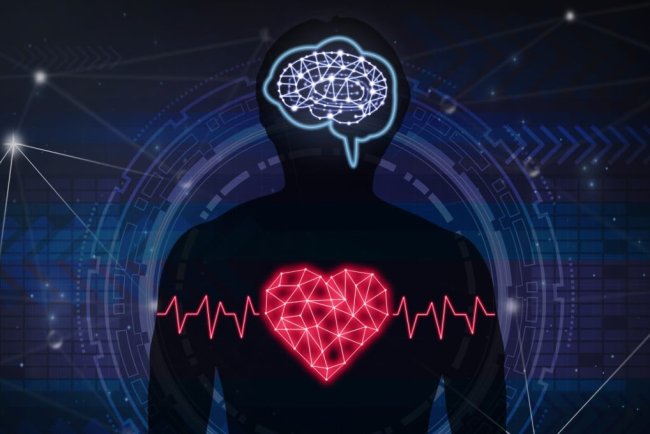Could Your Work Reduce Your Alzheimer's Risk? What We Could Learn from Taxi and Ambulance Drivers
Without exaggeration, Alzheimer's illness is a thief. We are still searching for more conclusive explanations and really good remedies after years of research. For now, we rely on tried-and-true strategies to reduce our risk of developing it: a healthy diet, regular exercise, restful sleep, and social interaction. However, according to a recent study, there might be an even more surprising way to lower your risk of Alzheimer's: your employment.

Two Typical Jobs, One Unexpected Discovery
Researchers discovered something strange—and potentially revolutionary—in a comprehensive study that included data from about 9 million people over a three-year period. Compared to those in other occupations, those whose last recorded occupation was that of a taxi or ambulance driver had a much lower risk of dying from Alzheimer's disease. There were more than 40% fewer deaths from Alzheimer's in these groups, therefore the difference was not merely a statistical anomaly.
The percentage for ambulance drivers was 1.03%. You begin to wonder: what is it about these driving positions that makes them so protective? Compare that to 1.82% for chief executives, a figure that is more in line with the general population.
The Map Room of Memory: The Hippocampus Connection
We must take a detour through the hippocampus, the brain's memory and navigation center, in order to unravel this riddle. The back portion of the hippocampus, which is crucial for spatial memory, was found to be larger than normal in London taxi drivers decades ago. Their continual mental mapping of the city's winding streets appeared to be the cause of this structural shift.
Given that the hippocampus is infamously targeted in the early stages of Alzheimer's disease, it begs the intriguing question: Could high-stakes, real-time navigation genuinely strengthen resilience in this susceptible area of the brain?
That theory is expanded upon in the latest study. In addition to operating a vehicle, taxi and ambulance drivers must navigate busy situations, process new routes continuously, respond to real-time information, and perform all of these tasks under pressure. This type of mental acrobatics could strengthen the hippocampus and increase its resilience to Alzheimer's attacks.
What About Other Drivers, However?
It is interesting to note that not all drivers appear to be protected by this. The rates were more in line with the population average (1.65%) for bus drivers, who frequently travel set routes. Despite their apparent benefit from navigational labor, pilots and ship captains had some of the highest rates of Alzheimer's-related deaths (2.34% and 2.12%, respectively).
What is the difference? It boils down to spontaneity and problem-solving in real time, according to the researchers.
Bus drivers follow strict timetables. However, drivers of ambulances and taxis are more like urban orienteers, always adjusting in response to calls, traffic, or emergencies.
A Few Considerations for Speed Bumps
Let us recognize the limitations of the study before we start promoting GPS-free taxi shifts as strategies to avoid Alzheimer's.
It is not experimental; it is observational. Therefore, we can only conclude that there is a correlation rather than a direct link between these occupations and a lower incidence of Alzheimer's.
Not all death certificates are trustworthy. Their "regular occupation" is listed, and family members fill them out, albeit they may not always answer correctly.
Self-selection is conceivable. People who have a good spatial memory by nature could be lured to careers that need it, indicating that they were already cognitively powerful before the work.
There can be other lifestyle issues at play. Perhaps cab drivers have different stressors or smoke less. Confounding variables are impossible to rule out.
There are also not many. In the study, cab drivers with Alzheimer's disease accounted for just 10 fatalities. A few incorrect classifications could change the result.
On top of that, what about GPS? Drivers of ambulances and taxis nowadays carry turn-by-turn navigation in their pockets and do not just rely on their memory and street smarts. Does this advantage diminish in the Waze era if hippocampus growth depends on self-guided navigation?
The Implications for the Others
Can the rest of us duplicate the cognitive workout these drivers appear to receive without changing careers? That is the intriguing and hopeful question our research raises.
It is feasible.
The consequences of spatial challenges, such as geocaching or orienteering, may be comparable. According to a short study, orienteers with more experience—those who use a map and compass to navigate unfamiliar terrain—had superior spatial memory compared to novices.
Even puzzles and games that challenge your ability to create mental maps may be helpful. Consider games like chess, Labyrinth, Rubik's Cubes, Tetris, Minecraft, jigsaw puzzles, or even a nostalgic round of Battleship. Complexity and novelty—tasks that force your brain to traverse uncharted areas, either physically or figuratively—may be the key.
However, further study is required to ascertain the precise type of brain training, frequency, and duration required to genuinely prevent or postpone Alzheimer's.
In summary, your brain prefers to stray
It is both lyrical and profound to consider that your profession or interests may protect your brain from one of the most debilitating illnesses we are aware of. Furthermore, this study is really fascinating despite the fact that it is not definitive.
Perhaps we have undervalued the importance of being physically and cognitively present, managing complexity in real time, and interacting with our surroundings in a responsive manner. Perhaps what matters more than what we do is how actively we interact with the outside world.
So go ahead and enjoy the scenery. Get lost. Without your phone, re-learn your neighborhood. It may have neuroprotective properties in addition to being refreshing.
What's Your Reaction?




















